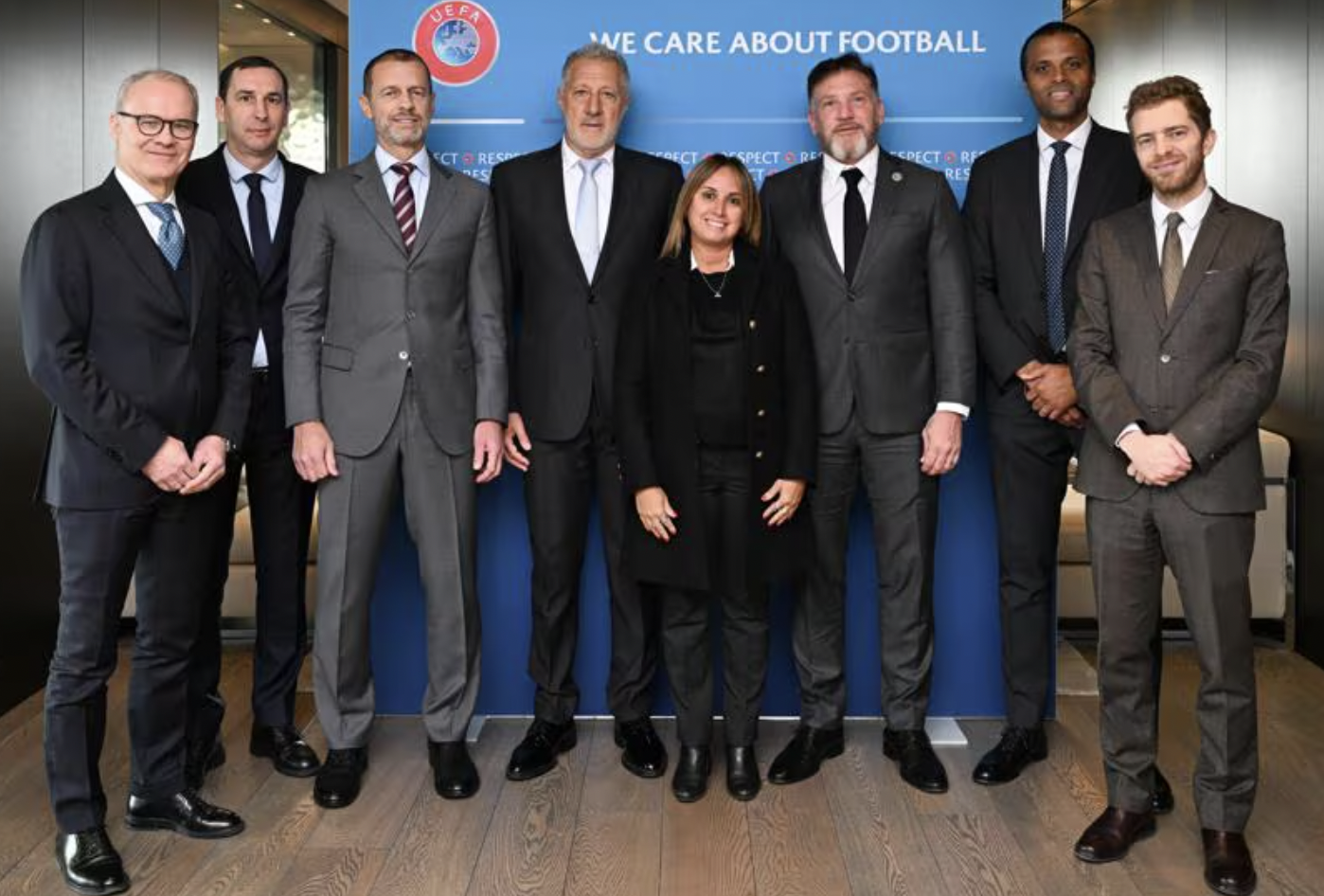February 6 – UEFA president Aleksander Čeferin hosted a meeting with Conmebol and Fifpro representatives at UEFA headquarters in Nyon, Switzerland, yesterday (Wednesday) with player welfare being the focus of the discussion.
The international match calendar and the increased workload for an elite group of players has been a major issue for the players’ union. This year’s expanded 32-team Club World Cup, FIFA’s first significant foray into establishing an international club competition, has attracted most criticism.
The Nyon meeting was attended by Čeferin, Conmebol president Alejandro Domínguez, Fifpro president Sergio Marchi, Fifpro Europe president David Terrier and Fifpro Europe board member Maheta Molango. It follows a meeting last week between FIFA president Gianni Infantino and Fifpro – their first following the furore that blew up around the CWC and its scheduling.
“Today’s discussions focused on player welfare and the continued strengthening of cooperation between confederations and player representatives. The participants reiterated their commitment to working together to address key challenges in the game and ensuring that players’ interests remain at the heart of football’s development and evolution,” said UEFA, following the meeting.
While there were no obvious policy decisions emerging from the meeting, it is certainly an important political point in time in the evolution of the match calendar.
“As the historic powerhouses of world football, Europe and South America share a deep-rooted connection, not only through the talent that flows between their continents, but also through a common vision for football’s future,” said the post-meeting communique.
It is a statement that fires a shot across the bows of FIFA, which has been brazen in its attempt to establish a foothold in the club game – and in its global revenues. It also sends the message, in case it isn’t fully understood in Zurich (or wherever FIFA now thinks its HQ is), that UEFA’s and Conmebol’s guns are very much bigger and more powerful than FIFA’s.
It is unclear if the Nyon discussion included pressure on Fifpro to withdraw its legal complaints against FIFA and its Club World Cup.
While not confirmed, it is likely to have included early mention of a separate discussion that is beginning to bubble in UEFA around the potential scrapping of extra-time in club knock-out rounds. That would make a small contribution to player welfare, but it won’t solve the player overload problem on its own.
Both Conmebol and UEFA have been supportive of the Club World Cup, though to different degrees. Conmebol sees it as an opportunity for its leading clubs to make money, while UEFA is generally ambivalent towards it but has concerns over the protection of its own club competitions that have expanded this season.
FIFA and its president have, until last week, refused to engage with Fifpro and mandated the Club World Cup into the international match calendar without any ‘meaningful’ consultation with either the players’ unions or the World Leagues Association.
UEFA, which has added games in its own club competitions this season, has taken a different approach in terms of dialogue and has even established a position on its executive committee for Fifpro.
UEFA also has a development pact with Conmebol that includes competition between the two confederations’ nations and club sides. Conmebol has a similar pact with Concacaf.
In June, Fifpro Europe member unions submitted a legal claim against FIFA in the Brussels Court of Commerce, challenging the legality of FIFA’s decisions to unilaterally set the International Match Calendar and, in particular, the decision to create and schedule the FIFA Club World Cup 2025.
In October, a separate complaint was filed with the European Commission, with the European Leagues and LaLiga as co-complainants. That complaint said the oversaturated international football calendar risks player safety and wellbeing, and threatens the economic and social sustainability of important and well-established national competitions.
The outcome of those actions could potentially shape the calendar and player workload conversation – although that assumes that FIFA is listening and prepared to engage even-handedly, a characteristic that has rarely been identifiable within the current FIFA administration.
In the meantime, the three parties that met in Nyon said: “Further dialogue will continue in the coming months to advance shared objectives and reinforce strategic collaboration at the international level.”
Contact the writer of this story at moc.l1745673055labto1745673055ofdlr1745673055owedi1745673055sni@n1745673055osloh1745673055cin.l1745673055uap1745673055
